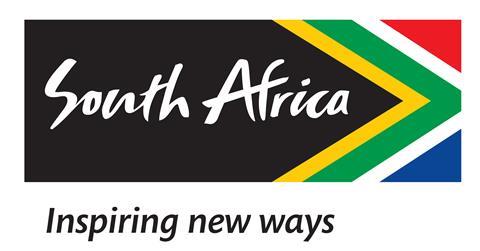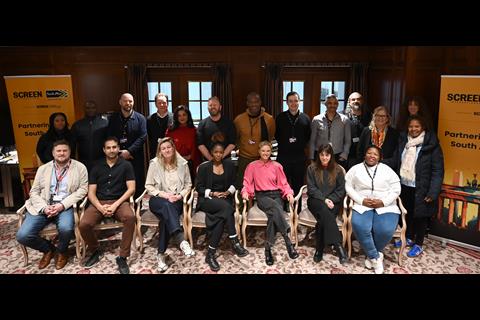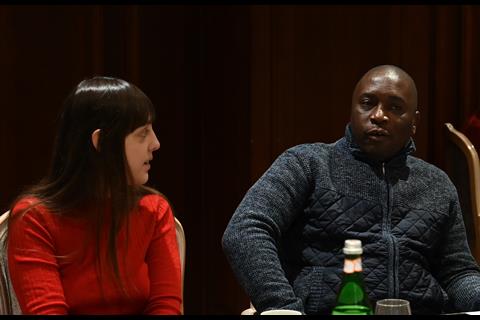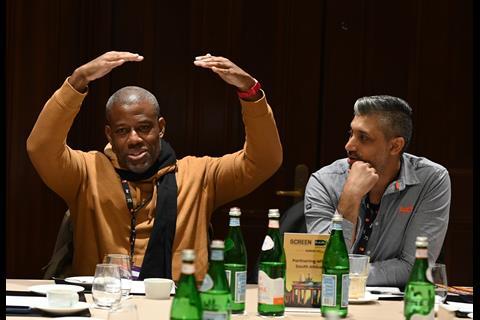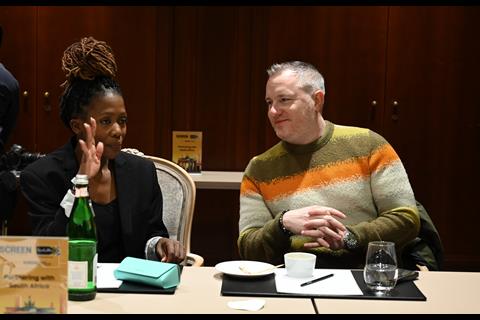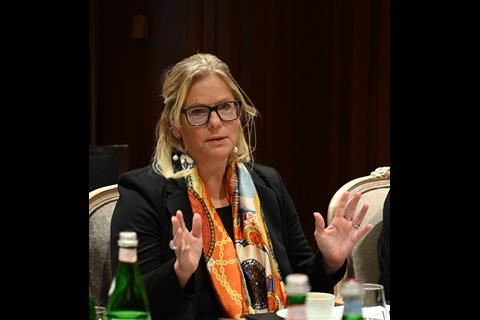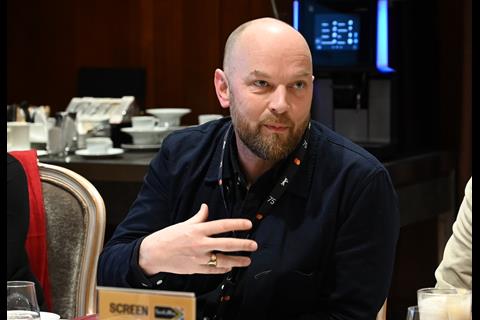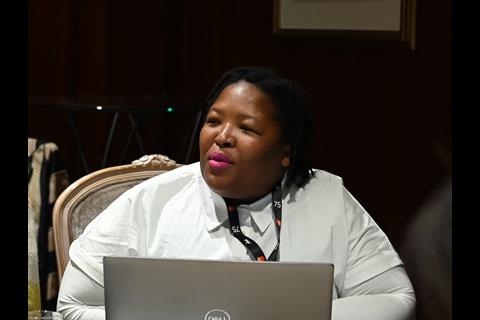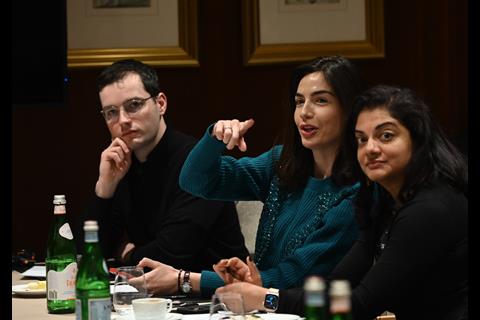South Africa as a burgeoning international co-production partner was the key topic at a round table hosted by Screen International in partnership with Brand South Africa at the Berlinale on Sunday, February 16.
Attendees included international producers, sales agents and funders, who discussed best practice for nurturing a sustainable local film industry while ensuring that — once a film is made — distribution and commercial viability is achievable.
Yolanda Ncokotwana, head of industry development for South Africa’s National Film & Video Foundation (NFVF), highlighted the region’s successful co-productions, including The Heart Is A Muscle by Imran Hamdulay, a South Africa and Saudia Arabia co-pro screening in the Berlinale’s Panorama.
She also stressed that in the traditional co-production model where South Africans come with a project on the table, “once you get to raising finances, you start comparing the rand to other currencies, you move from 100% to 20% ownership.” To counter this, South Africa is offering co-development with nations such as Canada and Brazil, so the final project partners are in a “50/50 position”.
Producer Helena Danielsson of Nordisk Film, a fan of co-productions, acknowledged the Jenga-like situation of putting together an international collaboration. “There are always different bureaucracies, processes and timings of when you get approvals. And there are cultural differences,” she said, while underlining it was worth the effort.
Independent producer Neerja Narayanan, who has worked with major studios including 20th Century Studios and Sony Pictures Entertainment, said there needed to be more “initiative from distribution companies and streamers to support the local [South African] market by giving them better deal terms that are sustainable, so the industry grows organically”.
Location highlights
Ncokotwana cited international productions such as Netflix’s One Piece and Sony Pictures’ The Woman King as case studios for the country’s production infrastructure. South Africa, she said, has a longstanding robust and reliable production service and infrastructure.
South African producer Khosie Dali, founder of Miss K Productions, noted the need to develop crews in regional areas, providing the next generation with career paths beyond above-the-line roles. She said this growth could come by decentralising the industry outside Cape Town (known as a production services hub) and Johannesburg (known for its TV and independent production).
Jimmy Ranamane, general manager of global markets at Brand South Africa, called for greater government support of the South African industry. “That’s where we need to close that gap,” he said. “For [film] to compete for budget with manufacturing and with other sectors, it has to be an economic contributor and seen in that manner, so that you can compete for that access.”
Ranamane added: “We need to find the balance in terms of creating the market locally but also ensuring our stories get out there.”
Milton Reddy, SVP of sales and acquisition at Known Associates Distribution in South Africa and Andreas Rothbauer, co-managing director of Germany’s Picture Tree, agreed that consideration of marketing and distribution at the beginning of co-production agreements can ensure that a project makes it onto screens once complete.
In association with Screen Global Production
In partnership with:
